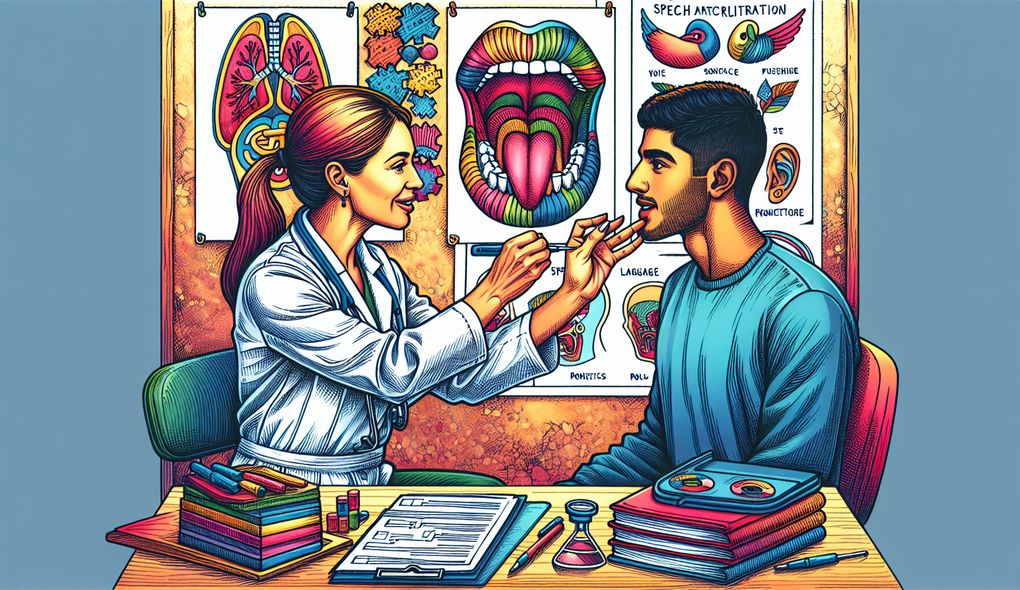How do you ensure confidentiality and privacy when working with patients?
INTERMEDIATE LEVEL

Sample answer to the question:
To ensure confidentiality and privacy when working with patients, I follow strict protocols and guidelines. Firstly, I always obtain written consent from the patient or their legal guardian before discussing their personal information with anyone else. I also make sure to use secure and password-protected electronic systems for storing patient records. Additionally, I maintain physical security by locking filing cabinets and keeping sensitive documents out of sight. When communicating with patients, I ensure that our conversations are held in private and away from others. Lastly, I strictly adhere to the Health Insurance Portability and Accountability Act (HIPAA) regulations to protect patient confidentiality.
Here is a more solid answer:
Ensuring confidentiality and privacy when working with patients is of utmost importance to me. In my previous role as a Speech-Language Pathologist, I implemented several measures to protect patient information. For example, I always obtained written consent from patients or their legal guardians before discussing their personal information with anyone else. I also used a secure and password-protected electronic system to store patient records. In terms of physical security, I made sure to lock filing cabinets containing sensitive information and kept them out of sight. During therapy sessions, I maintained privacy by holding conversations in a private room away from others. Additionally, I was well-versed in the Health Insurance Portability and Accountability Act (HIPAA) regulations and strictly adhered to them to protect patient confidentiality at all times.
Why is this a more solid answer?
The solid answer expands on the basic answer by providing specific examples of how the candidate has implemented confidentiality and privacy measures in their previous role as a Speech-Language Pathologist. The candidate mentions obtaining written consent, using secure electronic systems, and maintaining physical security. The answer also highlights the candidate's knowledge of HIPAA regulations, which is crucial in maintaining patient confidentiality. However, the answer could be improved by providing more detail on how the candidate educated patients and their families about confidentiality and privacy.
An example of a exceptional answer:
Ensuring confidentiality and privacy is a top priority for me when working with patients. In my previous role as a Speech-Language Pathologist, I implemented a comprehensive approach to protect patient information. Firstly, I consistently obtained written consent from patients or their legal guardians before discussing their personal information with anyone else. To safeguard electronic records, I utilized a secure and password-protected system that encrypted patient data. Physical security was upheld by using locked filing cabinets and ensuring sensitive documents were never left unattended. During therapy sessions, I proactively created a safe and private environment by conducting sessions in soundproof rooms away from others. I also took the initiative to educate patients and their families about the importance of confidentiality and privacy, highlighting the measures I had in place to protect their information. Moreover, I regularly reviewed and familiarized myself with HIPAA regulations, ensuring strict compliance. By regularly attending workshops and seminars on patient confidentiality, I ensured that I remained up-to-date with the latest practices and regulations.
Why is this an exceptional answer?
The exceptional answer demonstrates a comprehensive understanding of the steps and measures needed to ensure confidentiality and privacy when working with patients. The candidate goes beyond the basic and solid answers by providing specific examples of how they implemented a comprehensive approach to protect patient information. The answer also highlights the candidate's proactive approach in educating patients and their families about confidentiality and privacy. Additionally, the candidate emphasizes their commitment to staying up-to-date with the latest practices and regulations by attending workshops and seminars. Overall, the answer shows a high level of competence and dedication to maintaining patient confidentiality.
How to prepare for this question:
- Familiarize yourself with HIPAA regulations and guidelines to ensure a solid understanding of patient confidentiality requirements.
- Think about specific examples from your past experiences where you have implemented measures to protect patient confidentiality and privacy.
- Consider how you can effectively communicate the importance of confidentiality to patients and their families during the interview.
- Stay updated with the latest practices and regulations related to patient confidentiality through continued education and professional development opportunities.
What are interviewers evaluating with this question?
- Confidentiality and Privacy

